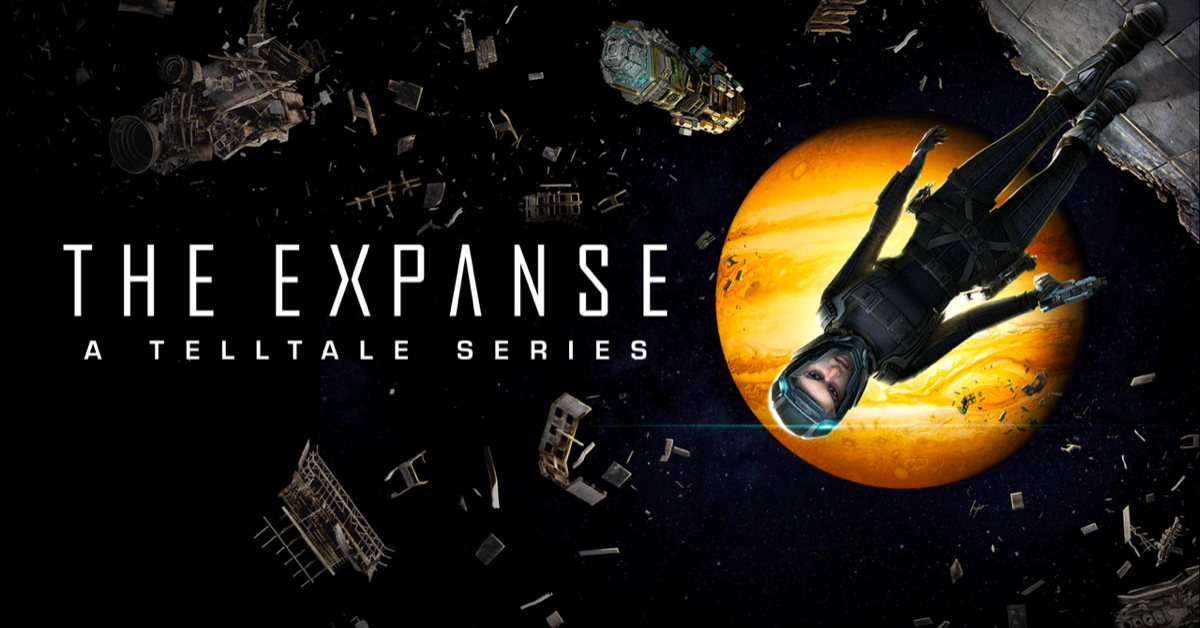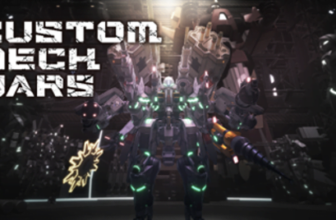
The moment you initiate the premiere episode of The Expanse: A Telltale Series, you are immediately thrust into making critical, life-altering decisions. While some options may initially appear insignificant, the majority prompt the statement “[character name] will remember that” to flash in the top left of your screen, thereby sowing seeds of doubt about the possible repercussions of your actions in future episodes. This element of choice and ensuing consequence is quintessential to the Telltale identity. At first sight, one could mistakenly view The Expanse as a mere duplicate of the company’s earlier games, only superficially rebranded to suit the relevant franchise. However, such an assumption would be drastically incorrect.
An in-depth look reveals Deck Nine Games—the company that developed Life Is Strange: True Colors and co-created this venture with Telltale—has fundamentally enhanced the typical Telltale approach by incorporating a completely new facet. In The Expanse, players are granted the liberty to navigate through the game’s three-dimensional universe, an inaugural feature for Telltale whose prior games offered little scope for exploration or independent movement.
This shift to a standard third-person viewpoint significantly heightens the immersive experience, particularly given the game’s expansive and intricate surroundings. The addition of audio to Camina Drummer’s internal thoughts—a novelty not experienced in the series—significantly contributes to animating the game, fostering a bond between the gamer and the game’s lead character. Drummer, in the TV series, is recognized for her introverted nature, seldom expressing her emotions openly. The bold move to expose her inner dialogues is an innovative choice that resonates remarkably well, courtesy of the game’s exceptional script and the compelling performance by Drummer’s voice actor.
Cara Gee, who portrays Drummer in The Expanse television series, delivers a resounding performance by reprising her role in the game. Her dramatic and emotive portrayal is a game-changer, making it impossible to envision the game without her. Unlike the television series, Telltale’s The Expanse provides an insight into a novel, somewhat more susceptible facet of the typically aloof and mysterious Belter. This is achieved by establishing a prequel that chronicles Drummer’s life prior to the television series. When interacting with items, Drummer audibly reflects on the situation, effectively introducing her character to players unfamiliar with the series.
Indeed, the game also introduces a slew of novel characters, all integral crew members of the scavenger ship Artemis along with Drummer. Ranging from the grumpy, seasoned pilot, Khan, to the divergent personas of the Morozov twins, Arlen and Rayen, the characters in Telltale’s series are authentic, effortlessly blending into the Expanse TV series or the foundational book series. As the narrative progresses, your perception of each character fluctuates significantly but consistently within a specific trajectory, rather than a volatile shift between a reliable ally and an unpredictable menace with a volatile temperament. This dynamic sharply differentiates from secondary characters in earlier Telltale games, such as Kenny from The Walking Dead series, who was erratic, oscillating between being a “useful companion” and a “self-centered fool who suddenly becomes antagonistic when the storyline requires a twist.”
Telltale’s game, The Expanse, is a prequel to its corresponding TV series, featuring Drummer as a key character who enjoys near-invulnerability unlike her compatriots. The survival of the team relies on Drummer’s decisions made during the five main episodes, which can result in either a completely intact team or a lone survivor – Drummer. The captivating nature of the characters across these episodes, along with a bonus sixth DLC episode releasing this fall, allows players to develop strong attachments, rendering their potential demise heartrending.
Significantly differentiating The Expanse from previous Telltale ventures is the superior animation quality. Deck Nine’s dedication to stellar visuals becomes evident from the onset of the game. Eschewing the caricature-like character designs seen in prior Telltale games, The Expanse showcases a more lifelike graphical representation and seamlessly crafted cutscenes. It boasts impressively detailed cutscenes and strikingly realistic environments, both indoors and in the vast expanses of space.
The crowning glory of the game’s visual effects is the character facial motion-capture and animations. Past Telltale games have struggled with realistic facial expressions. However, Deck Nine’s animations are fluid and authentic, enabling characters to exchange non-verbal cues and interact solely via body language and facial expressions. The profound impact of these moments is undeniable – every scene is meticulously crafted with intent, creating an immersive cinematic experience.
An exceptional feature of the game is its ability to captivate through a standalone narrative. Despite some sparse, awkward pauses between lines in cutscenes, the story is engaging, free of excessive exposition or trite fetch quests. In terms of dialogue and action, Drummer often faces binary choices. However, these decisions aren’t stereotypical “good” and “bad” alternatives. Drummer isn’t just a virtuous or villainous character; she’s a complex woman grappling with hard decisions. It’s seldom that an obviously “right” choice presents itself, unless the player discovers clues in the environment.
The Expanse prioritizes a “show, don’t tell” approach, utilizing environmental storytelling that renders exploration fun and rewarding, even without the promise of loot. This is especially true aboard the Artemis. Examining objects in the Artemis may reveal useful hints, making challenging decisions less daunting. Observations made by Drummer, like a defaced poster or an unsecured item, may offer valuable insights and even change over time due to events like zero-gravity movement.
On the downside, zero-gravity movement is one of the game’s weak points. It’s visually stunning but can be slow and frustrating, especially when backtracking is necessary. Dark, disorienting locations in the early stages can also add to the frustration. Another shortfall is the collectible mechanic. While scavenged items from derelict ships can be collected throughout the game, their purpose isn’t clear, as there’s no visible inventory or opportunity to distribute them.
Nonetheless, the game excels in other areas. Particularly noteworthy is how Drummer’s actions and dialogue are believable, regardless of the choices made by the player. Though Drummer’s dialogue responses are often limited to two options, they fit her character perfectly. The Expanse also avoids the common RPG pitfall of misleading dialogue options.
The game’s standout feature is its writing. Humor balances tension perfectly without resorting to forced comedy. The connection between Drummer and Martian ship mechanic Maya Castillo is strong from their first encounter. It’s up to the player to decide whether to pursue this romance, presenting realistic dilemmas and moral questions within the confines of the Artemis.
The Expanse is a testament to excellent narrative design, where each choice the player makes carries distinct consequences. The game seamlessly incorporates environmental hints, nuanced facial animations, and non-verbal cues, allowing players to find their own answers instead of being spoon-fed exposition. Every detail is accounted for, no mystery left unresolved.
More importantly, The Expanse has a soul. Unlike its predecessors, the game has vibrant characters and room for joy, breaking free from the doom and gloom of shows like Game of Thrones and The Walking Dead. Choices in the game have meaningful consequences, making the inability to save a character or the difficult decision to sacrifice one hit hard.
Amidst the landscape of expansive RPGs with endless side quests and sprawling maps, The Expanse: A Telltale Series is a refreshing departure. It proves that a great RPG doesn’t necessarily need to be an epic saga; it simply needs to immerse you into someone else’s world convincingly. The Expanse does just that, challenging you to make difficult decisions that linger long after you’ve stopped playing.





